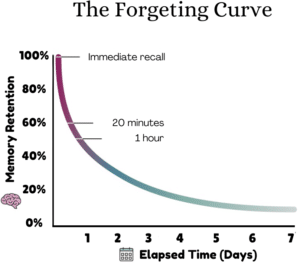Some students fail to achieve high scores and struggle to understand complex topics while others do that easily. These students work very hard, spending hours and days on topics that others find not so difficult and progress easily.
Naturally, a question arises, “How to study?”. To address this question let’s discuss some of the study techniques.
Surely there is a difference between the study techniques, methods, and schedule of both these categories. In the Philippines, you need a higher GWA score to be able to qualify for scholarships, admissions and jobs.
But the real question is, what are those methods and study techniques that the high achievers use? Well, here we have compiled some of them so you are not overwhelmed. Follow these best study practices and get a rise in your GWA score.
Latest Techniques and Scientific Tips for GWA Success in the Philippines
Table of Contents
1. Introduction: The Importance of GWA (General Weighted Average)
The Role of GWA in Scholarships, Admissions, and Jobs in the Philippines
Why a High GWA is Essential for Your Future
2. Understanding the Science Behind Effective Study Techniques
Cognitive Science and Its Impact on Learning
I. Memory Consolidation: The Role of Sleep and Rest
II. Cognitive Load Theory: Managing Information Effectively
III. Metacognition: Being Aware of Your Learning Process
3. Spaced Repetition: Enhancing Memory Retention
I. The Forgetting Curve: Why Revisiting Information is Crucial
II. Effective Spacing Intervals: Optimizing Your Study Sessions
III. Applications of Spaced Repetition: Using Tools Like Anki
4. Active Recall: Engaging with Material for Better Understanding
I. The Testing Effect: Why Testing Improves Retention
II. Practical Active Recall Strategies
a. Self Quizzing: Testing Yourself for Better Comprehension
b. Teach Someone Else: Reinforcing Learning by Teaching
c. Summarization: Quickly Reviewing and Testing Your Memory
5. Combining Active Recall with Spaced Repetition
How to Integrate Both Study Techniques for Maximum Learning Efficiency
6. Conclusion
1. Introduction: The Importance of GWA (General Weighted Average)
The General Weighted Average (GWA) is a scoring system in the Philippines used to assess the academic progress of students. Maintaining a good GWA in the Philippines is important for scholarships, admissions and job applications. Institutions have a certain measuring gauge based on the GWA calculator and you must maintain a good GWA score to secure your position for applications.
Having a good GWA score in the Philippines opens opportunities for scholarships, admission to your dream college/university, and jobs you aspire for. The better the GWA score you give, the more opportunities you have than those who fall behind. It is safe to say that GWA can shape your career and potentially, your career.
So, better aim high and plan to keep a higher GWA score. Keep firm on the plan and keep working hard. Make your goals and work accordingly.
2. Understanding the Science Behind Effective Study Techniques
If you are travelling between cities, a smart approach is to travel through fast means. You can do the hard work and go on foot. But it is not a smart and reasonable choice. The same analogy is for studies. There are much faster and better ways to study than just picking up a book and spending hours cramming, studying and learning. Let me give you some practical methods to make your study sessions super effective.
Cognitive Science:
I. Memory Consolidation
According to science, our brains retain information best when it’s given rest. Mostly during our sleep the brain forms new neural networks and processes information to retain in the neurons.
To make it effective, spread the study sessions over time and reinforce your memory with adequate sleep and rest. This will make the recalling of information quick and efficient.
II. Cognitive Load Theory
Don’t overload your brain with information or it will lose it quickly. According to Cognitive Load Theory, our brain can only process a limited information at a time. Divide your topics into small manageable chunks. It will increase information retention and understanding.
Feeding small and well-organised portions of information saves the brain from cognitive overload. This practice also allows the brain to develop quick comprehension of complex topics.
III. Metacognition
You need to be well aware of your learning process. Metacognition involves self-assessments to evaluate your progress and then adapt your strategies accordingly.
Regularly questioning yourself on the topic and the content helps you study more effectively and qualitatively.
Spaced Repetition
I. Forgetting Curve
Studies reveal that our brain tends to forget the information if it’s not revisited. Information feed and not recalled again marks it as irrelevant and is swiped clean slowly from our drive.
It is necessary to do the repetition to keep your information on the surface of the brain to be accessed again.
II. Effective Spacing Intervals
To stop this from happening, keep revisiting the information. First, revise it after 24 hours, then after 3 days, a week, a month, 3 months and so on. By following this pattern not only keeps the information fresh and retrievable but also enhances your understanding of that topic.
III. Applications of Spaced Repetition
There are educational applications like Anki that help you to do spaced repetition. These applications automatically incorporate these intervals to optimize your schedules to enhance your learning capability.
Spaced repetition is particularly useful for memorization of vocabulary, dates, formulas, etc.
Active Recall
To make the retention and recalling more effective and easy, you need to practice active recalling, not passive. Active recalling is proven to help enhance your reviewing of information.
Following are some of the methods for Active Recalling.
I. The Testing Effect
It is empirically proven that testing yourself on the material results in better retention of information. Active recalling is better than simply reading it.
II. Practical Active Recall Strategies
Following are some of the strategies for actively recalling your study material.
a. Self Quizzing
Quiz yourself on the topics. Close the book and ask yourself questions. Solve exercises, past papers and MCQS to test yourself.
This will strengthen your memory and retention of information. This will also help develop the comprehension of the topic.
b. Teach Someone Else
The best way to develop an understanding of the topic is to teach someone else. If you can’t find any other classmate or friend, pretend to be teaching. Discuss it with yourself in a conversational tone.
c. Summarization
After reading a topic, quickly grab a pen and your notebook and summarize the topic from your memory. You will know where you lag and what important points you have missed.
Summarization is a quick and easy way to revise and test yourself on a specific topic.
Combining Active Recall with Spaced Repetition
The best strategy is to combine active recall and spaced retention. You can combine active recall (flashcards) and spaced retention (revise over a certain period) to reinforce learning over time.
This will ensure you are not only reviewing the study material but also actively engaging with it.
Conclusion
These study techniques are extremely helpful to ace your GWA with ease and effectiveness. After reading this article you don’t have to ask again, “How to study”. Just implement them and achieve your goals. It might be difficult for you to punctually and regularly implement these study techniques, and it is normal. But be consistent and keep doing it again and again until you become regular and punctual.






